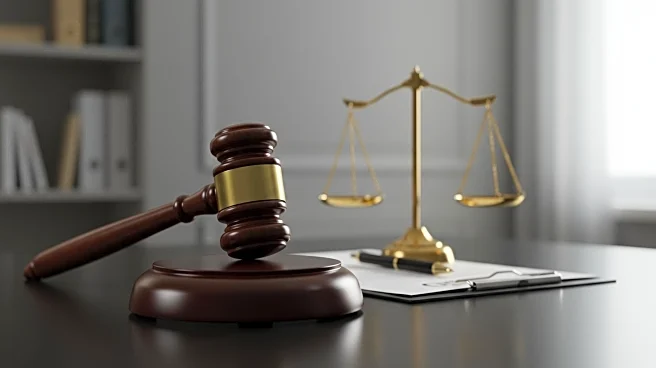What's Happening?
President Trump has intensified his criticism of Federal Reserve Chair Jerome Powell, threatening to sue him over a $2.5 billion renovation project for the Federal Reserve's headquarters. Trump has accused Powell of mismanaging the project, which he claims should have cost $50 million. This legal threat comes amid Trump's ongoing dissatisfaction with Powell's refusal to lower interest rates, which Trump argues is necessary for economic growth. Trump has also criticized former Treasury Secretary Steven Mnuchin for recommending Powell for the position. Despite these tensions, Powell remains in his role, with the Federal Reserve maintaining its independence in monetary policy decisions.
Why It's Important?
The conflict between President Trump and Jerome Powell highlights the ongoing political tensions surrounding the Federal Reserve's policies. Trump's criticism of Powell's handling of interest rates and the renovation project underscores the broader debate over the Fed's role in managing the economy. If Trump proceeds with legal action, it could further strain the relationship between the executive branch and the Federal Reserve, potentially impacting the Fed's ability to operate independently. This situation also reflects the challenges faced by central banks in balancing political pressures with economic objectives, particularly in a politically charged environment.
What's Next?
The potential lawsuit against Powell could lead to increased scrutiny of the Federal Reserve's operations and decision-making processes. It may also prompt discussions within Congress and among economic stakeholders about the Fed's accountability and transparency. Additionally, the upcoming Federal Reserve meeting in September, where interest rate decisions will be made, could be influenced by these developments. Stakeholders will be closely watching for any shifts in the Fed's policy stance, especially in light of the recent inflation data and economic indicators.
Beyond the Headlines
This situation raises questions about the ethical and legal implications of political interference in central bank operations. The independence of the Federal Reserve is a cornerstone of its ability to manage monetary policy effectively, and any perceived threats to this independence could have long-term consequences for the U.S. economy. Furthermore, the renovation project's cost overruns may lead to broader discussions about government spending and project management, potentially influencing future policy decisions.










